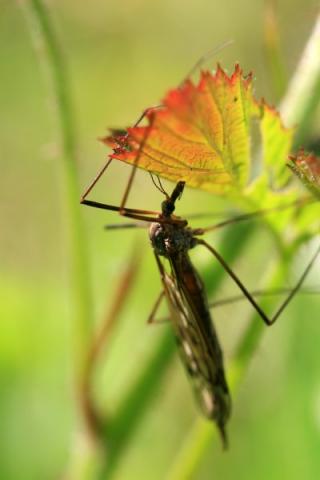Protect yourself against malaria

The Public Health Agency (PHA) is using World Malaria Day (25 April 2012) to warn travellers to take precautions on how to avoid this serious, sometimes fatal disease spread by the bite of infected mosquitoes in tropical countries. The number of malaria infections recorded among UK residents has increased by almost 30% in the last two years.
Malaria is common in many tropical countries, including large areas of Africa, Asia, Central and South America, Haiti and the Dominican Republic, parts of the Middle and Far East and some Pacific Ocean Islands.
Dr Michael Devine, Consultant in Health Protection, PHA, said: “Although malaria is potentially deadly, it is almost completely preventable. There are two main ways of avoiding malaria and it is important to follow both of them. These are, taking malaria prevention tablets and avoiding mosquito bites.”
Malaria prevention tablets
There are many different malaria prevention tablets and it is very important to take the right ones for the area that you are visiting. Some of the tablets have to be started a week or two before going to an area of malarial risk, so it is important to get travel advice at least four to six weeks before you go. It is also extremely important that the tablets are taken after you leave a malaria hotspot – according to the travel advice that you have been given. One of the most common reasons for people developing malaria is that they stop taking their tablets too soon, so always follow the instructions given to you for your tablets.
No tablets are 100% effective, which is why it is also very important to follow the advice on avoiding mosquito bites.
Avoiding mosquito bites
There are several ways of avoiding mosquito bites:
- Behaviour
Many types of mosquitoes bite between dusk and dawn, so being indoors during these hours can reduce the number of bites.
- Insect repellent
There are many types of repellent, but evidence shows that products containing the chemical DEET are the most effective. DEET is available in several strengths suitable for use on skin and should be used according to the instructions. The length of protection is also affected by conditions such as heat, humidity and amount of sweating.
- Clothing
When travelling in areas with malaria, wear loose-fitting long trousers and long sleeves in the evenings, as the mosquitoes that carry malaria are most active at this time.
Mosquitoes can bite through tight clothing, so wear loose fitting clothing.
Clothing can be treated with permethrin, a contact insecticide which will kill insects. Permethrin is available in formulations designed to be sprayed on to clothes.
- Screening and mosquito nets
Travellers who will be staying in basic accommodation without screening or air conditioning should sleep under a mosquito net to avoid being bitten at night.
Nets should be impregnated with permethrin; most nets are bought already treated prior to purchase.
- Knock down sprays
These can be used before you go to bed, to rid bedrooms of insects. Plug-in devices which release an insecticide vapour are also available. Insecticide coils should only be burnt in well-ventilated areas and can be useful for campers.
“It is imperative to seek travel advice from your GP or Travel Clinic prior to travelling to a malarious destination at a minimum of six to eight weeks before planned travel to discuss the most appropriate protection for you”, said Dr Devine.
“If you experience any flu-like symptoms such as fever, shaking, headache, as well as nausea and vomiting within one year of returning from a malarious region, you should seek urgent medical attention,” he concluded.
For a factsheet on malaria visit www.publichealth.hscni.net
Ends
Contact the PHA press office on 028 9055 3663
